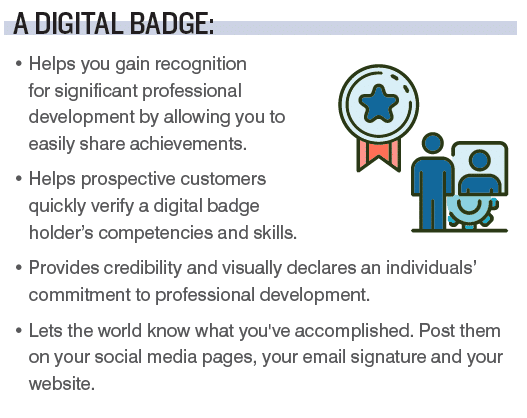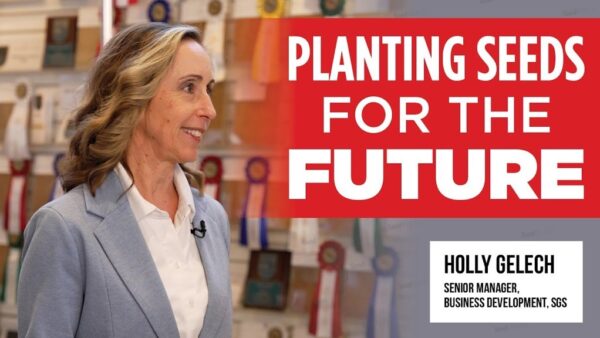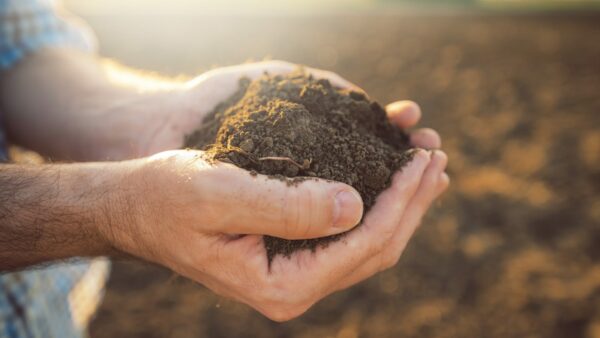The second of five entries in our Pillars of Professionalism series, profiling people and the skills they’ve mastered to help teach you skills for success in today’s seed industry.
Seed growers are highly skilled individuals running complex operations that produce the highest quality seed in the world. To ensure success, seed growers and their teams must be up to date on seed production standards, regulations and procedures, and best management practices for Canada’s seed sector.
This is no small task, but professional development can help seed growers stand out in the modern marketplace and take their skills and businesses to the next level.
Continuous learning increases your knowledge, competencies, and leadership skills, Lafontaine says. It can also enhance customers’ trust in your business and improve employee retention, performance, and engagement.
Up until now, there haven’t been many options for seed-specific learning and professional development opportunities for seed growers and seed business employees in Canada. Lafontaine and the team at the Canadian Seed Growers’ Association are meeting the challenge.
“Investing in ourselves, our businesses, and our teams through continuous professional development is crucial,” says Lafontaine. She is helping lead an organization moving into the online learning space and filling the seed sector’s learning void.
In 2022, CSGA will launch CSGA Learn, its new voluntary professional development eLearning program. CSGA Learn will provide new ways for seed growers and seed businesses to invest in themselves and their teams. With CSGA Learn, CSGA is answering the demand for more training options, she says.
CSGA Learn offers 10 different courses, each focusing on a particular aspect of the seed system, including seed classes, production standards, roguing, plot probation and breeder seed. It includes four curated programs tailored to specific learning interests.
The first course, “Introduction to the Seed Sector,” is complimentary to everyone.
“Many new seed growers have ag backgrounds, but their formal ag program didn’t necessarily focus on seed production. There are also labour shortage issues, and seed businesses may hire people with no ag experience. CSGA Learn provides training options and helps fill a void in our sector,” she says.
“We see that there is unequal access to seed-specific training across the country. CSGA Learn is a step towards ensuring the seed sector is equipped with people who have the right skillsets and knowledge required for a next-generation seed system,” says Lafontaine.
More and more professional development programs and recognitions offer digital badges. A digital badge is an online credential demonstrating an earned accomplishment or skill. These badges can be displayed, accessed, and verified online. Digital badges provide credibility that helps gain recognition and trust and establishes the individual’s commitment to professional development.
Starting in 2022, CSGA will offer digital badges to those who possess CSGA recognitions. Digital badges become an additional tool for growers to share their accreditations and elevate their branding online, whether on social media, an email signature, or their website, to distinguish themselves as one of the best in their field.
While CSGA currently manages two professional recognitions, CSGA-Accredited Plot Grower and CSGA-Recognized Plant Breeder, the association is now launching the Accredited Seed Grower designation. After completing the Experienced Seed Grower eLearning program in CSGA Learn, and in combination with successful in-field seed production experience, seed growers can attain this voluntary recognition and earn their digital badge.
For seed growers, improving their skills isn’t new, Lafontaine notes.
“This is an opportunity for experienced growers to expand their knowledge and benchmark their skills against National Occupational Standards for seed production. Plus, they obtain that digital badge to help them demonstrate their commitment to the certified seed.”
For more Pillars of Professionalism visit:
How Dilantha Fernando Saved the Canola Industry Billions in Revenue














